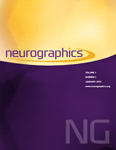
CT and MR Imaging Findings of Lingual Nerve Perineural Spread
Retrograde perineural spread is a well-described entity involving many major nerves, including the inferior alveolar, facial, and branches of the trigeminal nerves. However, isolated perineural spread along the lingual nerve has not been well-described in the literature and is often
overlooked. Lingual nerve perineural spread is a potential pathway of recurrent floor of the mouth cancers, which are often clinically occult. This article describes the CT and MR imaging findings of lingual nerve perineural spread characterized by thickening and enhancement along the course
of the lingual nerve, which extends from the lateral floor of the mouth (between the mylohyoid and hyoglossus muscles), proximally along the medial aspect of the mandibular ramus to the main trunk of mandibular nerve. We also identify 5 unique anatomic “anchor points” that represent
imaging landmarks that help radiologists diagnose patients with potential lingual nerve involvement and assist radiation oncologists in contouring the lingual nerve pathway and planning initial treatment in patients with high risk of perineural spread.
Learning Objective: To describe the CT and MR imaging findings of lingual nerve perineural spread and provide imaging landmarks that help the neuroradiologist identify lingual nerve involvement and assist radiation oncologists in planning the initial treatment in patients with a high risk of lingual nerve perineural spread
Learning Objective: To describe the CT and MR imaging findings of lingual nerve perineural spread and provide imaging landmarks that help the neuroradiologist identify lingual nerve involvement and assist radiation oncologists in planning the initial treatment in patients with a high risk of lingual nerve perineural spread
- Access Key
- Free content
- Partial Free content
- New content
- Open access content
- Partial Open access content
- Subscribed content
- Partial Subscribed content
- Free trial content